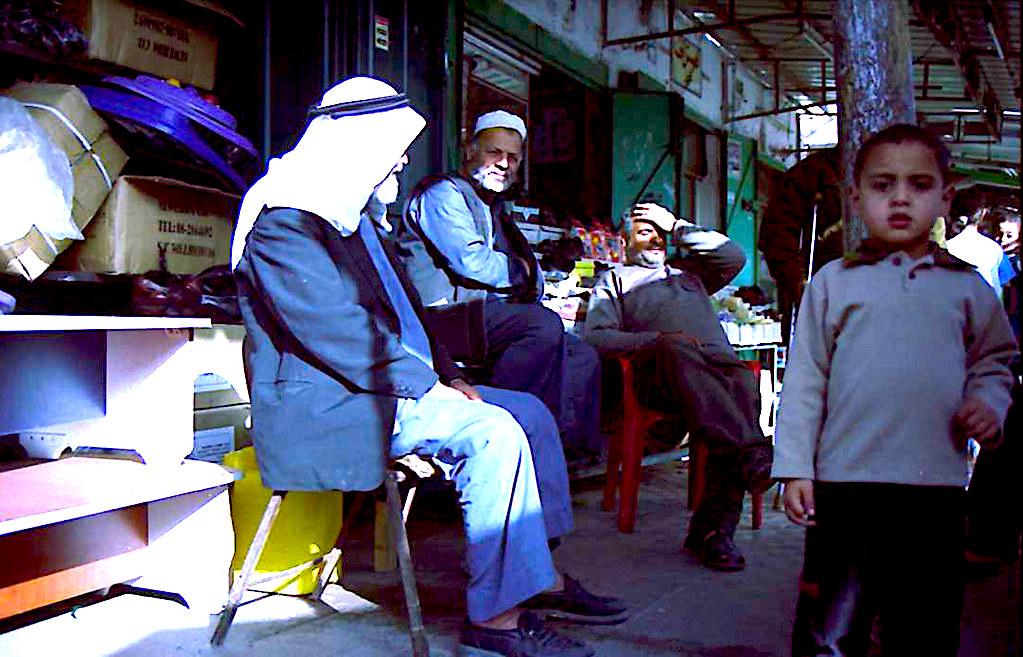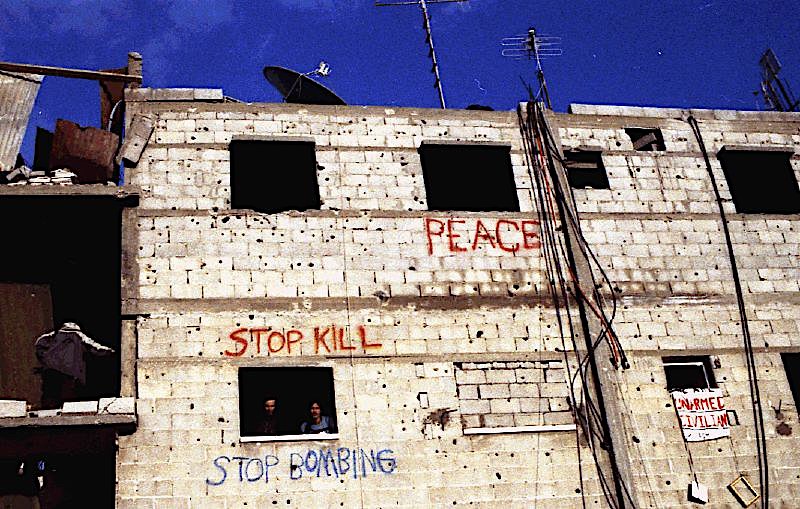An Israeli invasion of Rafah will not alter the battlefield in favor of the Israeli army, but it will be horrific for the displaced Palestinians, writes Ramzy Baroud.

Rafah, 2003. (helga tawil souri, Flickr, CC BY-NC-SA 2.0)
 The Palestinian city of Rafah is not just older than Israel, it is as old as civilization itself.
The Palestinian city of Rafah is not just older than Israel, it is as old as civilization itself.
It has existed for thousands of years. The Canaanites referred to it as Rafia, and Rafia has been almost always there, guarding the southern frontiers of Palestine, ancient and modern.
As the gateway between two continents and two worlds, Rafah has been at the forefront of many wars and foreign invasions, from ancient Egyptians to the Romans, to Napoleon and his eventually vanquished army.
Now, it is Benjamin Netanyahu’s turn. The Israeli prime minister has made Rafah the jewel of his crown of shame, the battle that would determine the fate of his genocidal war in Gaza — in fact the very future of his country.
“Those who want to prevent us from operating in Rafah are essentially telling us: ‘Lose the war,’” he said at a press conference on Feb. 17.
Currently, there are anywhere between 1.3 to 1.5 million people in Rafah, an area that, before the war started, had a population of merely 200,000 people.
Even before the start of this genocidal war, Rafah was still considered crowded. We can only imagine what the situation is right now, where hundreds of thousands of people are scattered in muddy refugee camps, subsisting in makeshift tents that are unable to withstand the elements of a harsh winter.
The mayor of Rafah says that only 10 percent of the needed food and water is reaching the population in the camps, where the people are suffering from extreme hunger, if not outright starvation.
Despite the destruction of mosques in Gaza by Israeli airstrikes, Palestinians continue to hold their Friday prayer beside the ruins of a mosque in Rafah, southern Gaza. pic.twitter.com/SKyWZ1bCv6
— Quds News Network (@QudsNen) March 1, 2024
These families are beyond traumatized as they have lost loved ones, homes, and have no access to any medical care. They are trapped between high walls, the sea, and a murderous military.
An Israeli invasion of Rafah will not alter the battlefield in favor of the Israeli army, but it will be horrific for the displaced Palestinians. The slaughter will go beyond everything we have seen, so far, anywhere in Gaza.
Where will up to 1.5 million people go when the Israel tanks arrive? The closest so-called safe area is al-Mawasi, which is already overcrowded and too small, to begin with. The displaced refugees there are also experiencing starvation due to Israel’s prevention of aid and constant bombing of convoys.
Then, there is northern Gaza, which is mostly in ruins; it has no food to the extent that, in some areas, even animal feed, which is now being consumed by humans, is no longer accessible.
If the international community does not finally develop the will to stop Israel, this horrific crime will, by far, prove worse than all the crimes that have already been committed, resulting in the death and wounding of over 100,000 people.

Rafah, 2007. (Andrea Giudiceandrea, Flickr, CC BY-NC-SA 2.0)
Even with the invasion of Rafah, Israel would achieve no military or strategic victory. Netanyahu simply wants to satisfy the calls for blood emanating from throughout Israel. After all of this, they are still seeking revenge.
“I am personally proud of the ruins of Gaza,” Israel’s Minister of Social Equality and Women’s Advancement May Golan, said at a Knesset session on Feb. 21.
But, still, there will be no victory in Rafah, either.
At the start of the war, Israel said Hamas was concentrated mostly in the north. The north was duly destroyed, though the resistance carried on unabated.
Then they claimed that the resistance headquarters was under al-Shifa Hospital, which was bombed, raided, and destroyed. Then they claimed Bureij, Maghazi, and central Gaza were the main prize of the war.
Then, Khan Younis was declared the “capital of Hamas.” And on and on…
Aside from the mass destruction and the killing of hundreds of civilians daily, Israel has won nothing; the resistance has not been defeated, and the alleged “Hamas capital” has conveniently shifted from one city to another, even from one neighborhood to another.
Now, the same ridiculous claims and unsubstantiated allegations are being made and leveled against Rafah, where most of Gaza’s population ran to, in total despair, to survive the onslaught.
Israel had initially hoped that Gazans would rush in their hundreds of thousands to the Sinai Desert. They did not. Then Israeli leaders, like far-right Israeli Finance Minister Bezalel Smotrich, began speaking of “voluntary migration” as the “right humanitarian solution.”
Still, the Palestinians stayed. Now, they have all agreed on the invasion of Rafah, a last-ditch effort to orchestrate another Palestinian Nakba.
But another Nakba will not happen. Palestinians will not allow for it to happen.
Ultimately, Netanyahu and Israel’s political madness must come to an end.
The world cannot persist in this cowardly inaction.
The lives of millions of Palestinians are dependent on our collective push to bring this genocide to an immediate end.
Ramzy Baroud is a journalist and the editor of the Palestine Chronicle. He is the author of five books including: These Chains Will Be Broken: Palestinian Stories of Struggle and Defiance in Israeli Prisons (2019), My Father Was a Freedom Fighter: Gaza’s Untold Story (2010) and The Second Palestinian Intifada: A Chronicle of a People’s Struggle (2006). Dr. Baroud is a non-resident senior research fellow at the Center for Islam and Global Affairs (CIGA), Istanbul Zaim University (IZU). His website is www.ramzybaroud.net.
This article is from Common Dreams.
Views expressed in this article and may or may not reflect those of Consortium News.
